Publications
fp21 is building a new culture of foreign policy. Explore our publications below.
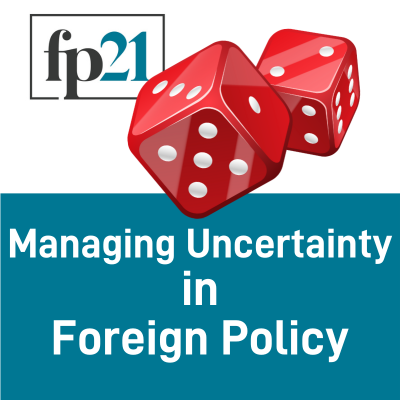
How to Embrace Uncertainty in Foreign Policy
Dan Spokojny: Managing uncertainty is a skill. It requires specialized techniques central to healthy decision-making. But when our policymakers ignore uncertainty in favor of instinct-driven assertions, they pass up opportunities to make it a little bit easier. Managing uncertainty should be a core skill for every aspiring foreign policy expert. This article is a primer on understanding how to manage uncertainty effectively.
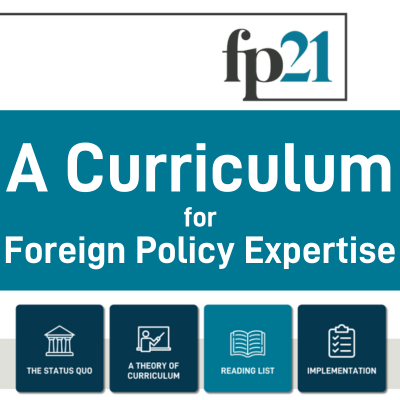
A Curriculum for Foreign Policy Expertise
Dan Spokojny: What training is required to become an expert in foreign policy Foreign policy is unique among fields of public policy in that there are no educational requirements, no body of tradecraft, and no standard training regimens to prepare its leaders. This article explores four categories of knowledge that all policymakers should know.
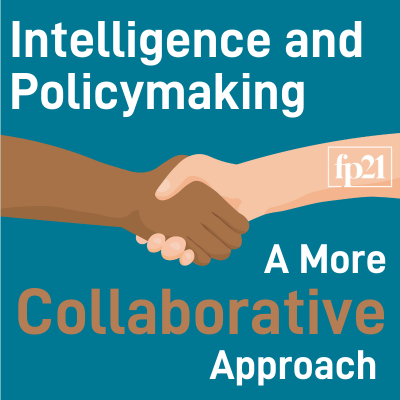
Intelligence and Policymaking: The Opportunity for a More Collaborative Approach
Gary Gomez: This paper explores the implications of a more collaborative and connected approach to intelligence analysis and policy formulation. It explores a model in which analysts and policymakers are co-located within policy offices at all levels of policymaking. The goal of this approach is to enable a better fusion of experience and knowledge to support holistic and relevant intelligence analysis and informed evidence-based foreign policy.
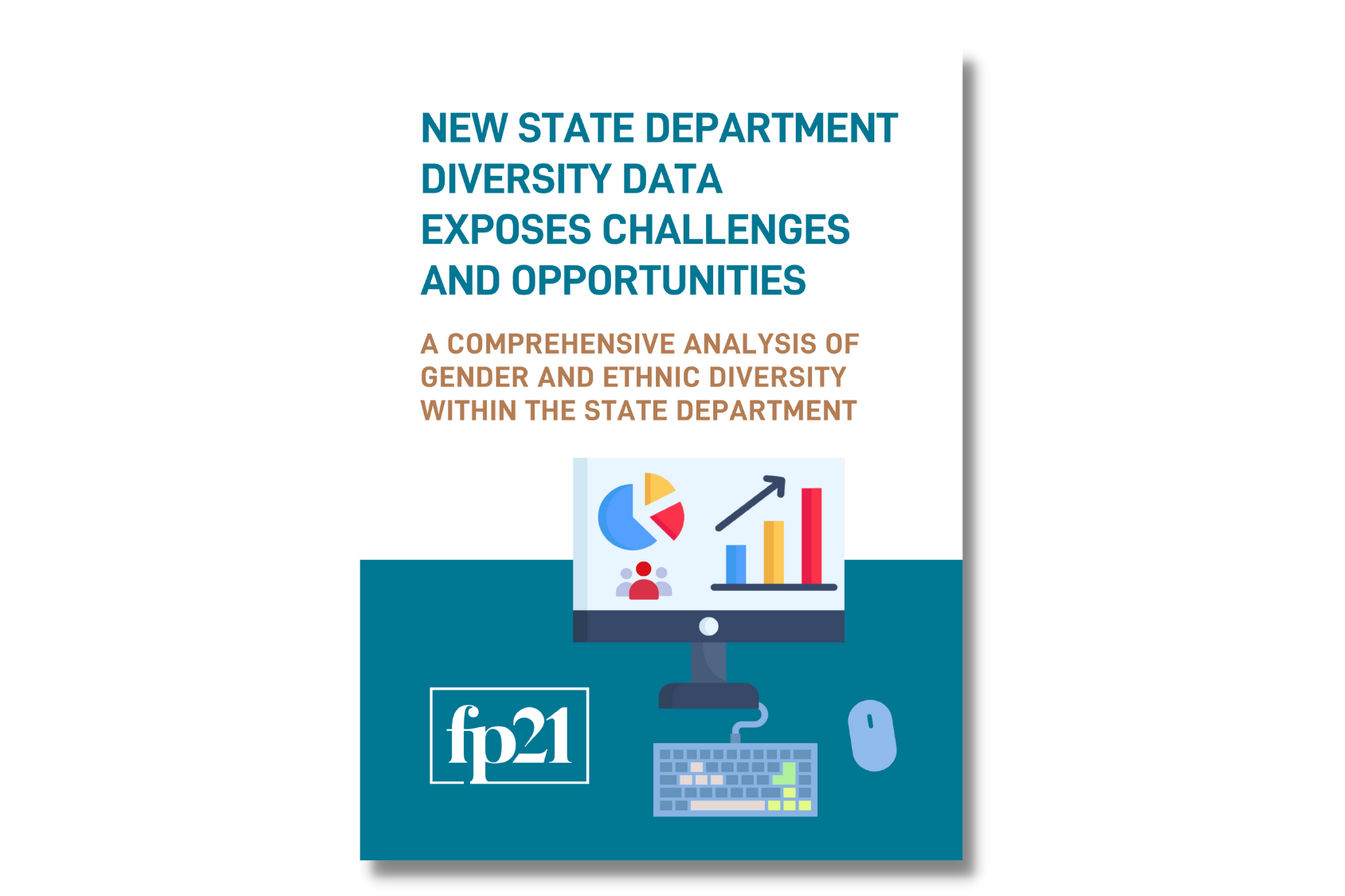
New State Department Diversity Data Exposes New Challenges and Opportunities
Ellice Huang, Thomas Scherer, Vic Marsh, & Dan Spokojny: How diverse is the State Department? Recently released State Department demographic statistics leave much to be desired. fp21 helps fill this gap by using sophisticated data science tools and archival information to examine representation in American diplomacy.
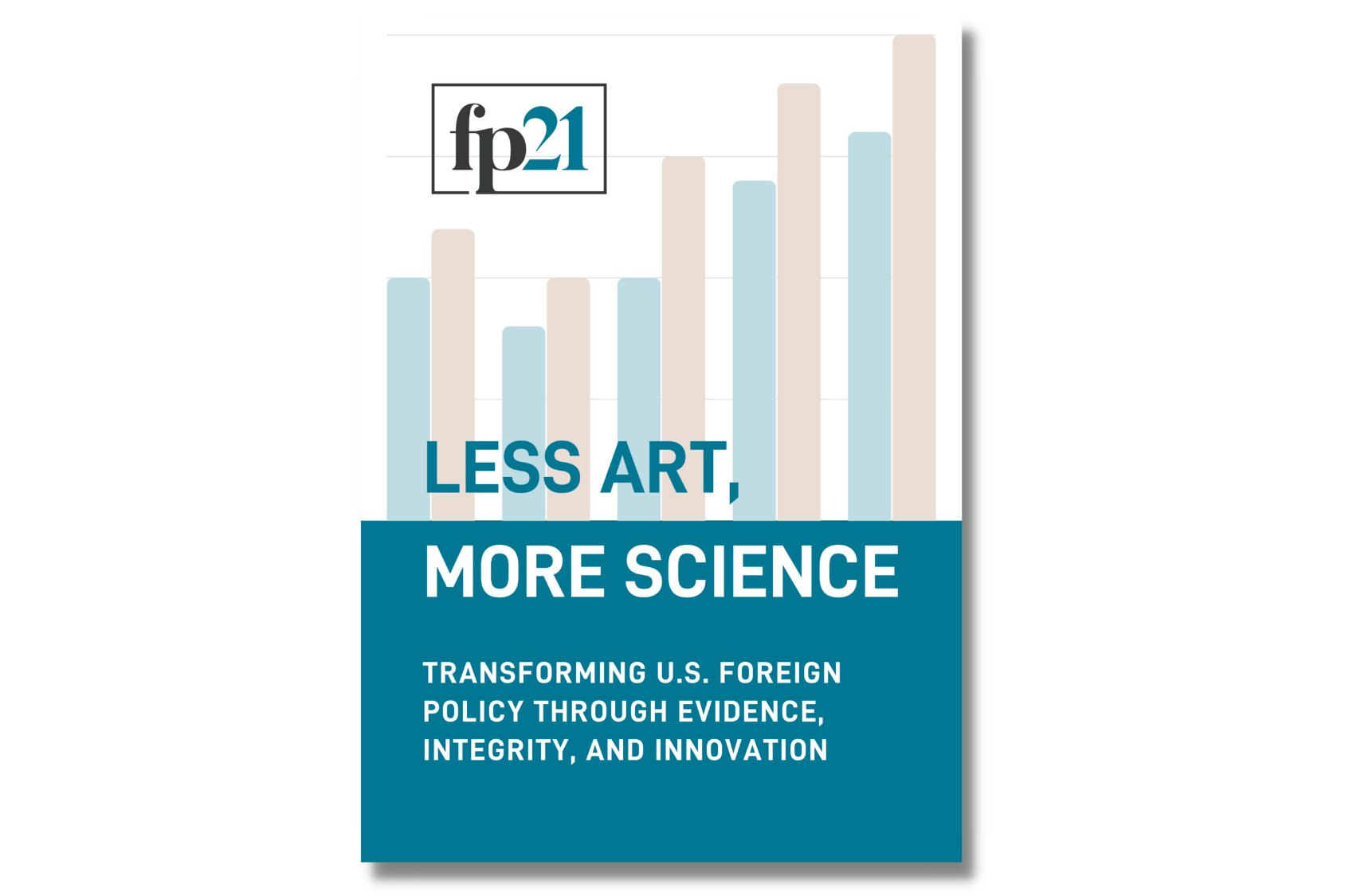
fp21’s Inaugural Report: Less Art, More Science
This report lays out a framework to achieve a more effective and modern culture of evidence-based foreign policymaking. From Silicon Valley to financial services, political campaigns to baseball, today’s most successful enterprises have built cultures grounded in evidence, analytics, and innovation. To lead in the 21st century, our government must harness more scientific tools to extract insight from a complex world and design better policy. Less Art, More Science lays out a pragmatic plan to transform the processes and institutions of foreign policy at each phase of policy making.

